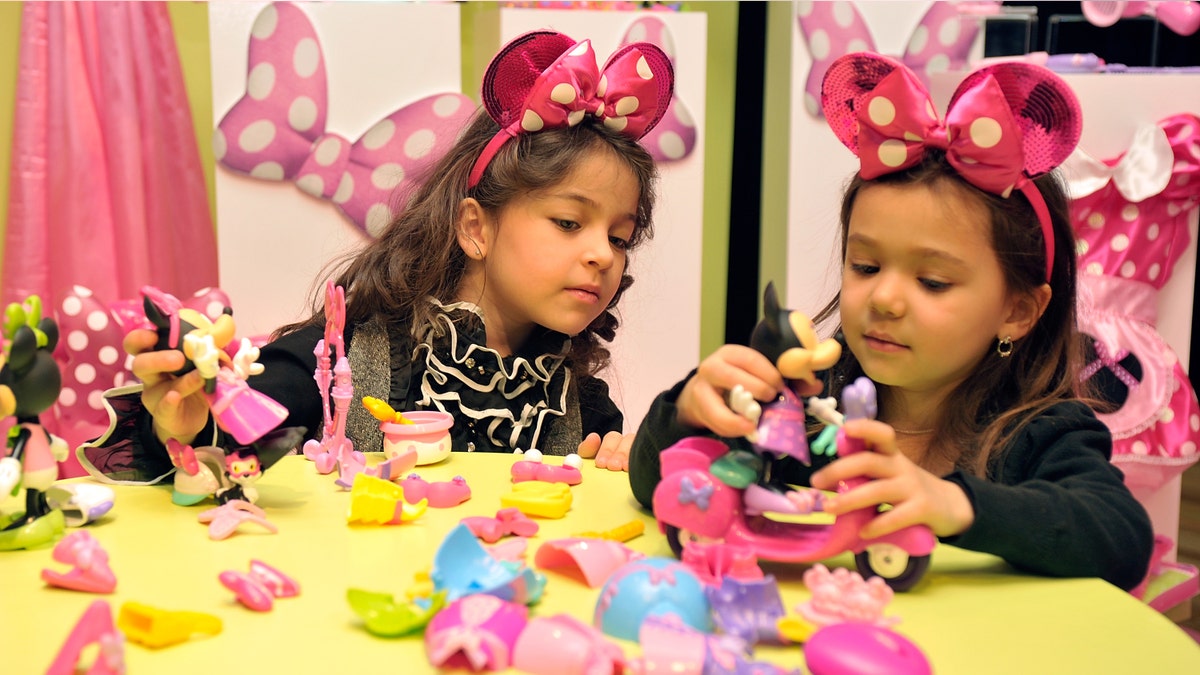
NEW YORK, NY - FEBRUARY 13: A view of children in a play area that was set up during the Disney Junior toy line unveiling with Osbourne and Arquette at Altman Building on February 13, 2012 in New York City. (Photo by Joe Corrigan/Getty Images for Disney) (2012 Getty Images)
With so many toys on the market nowadays, parents can find it a challenge when it comes to buying educational gifts for their preschoolers. Everywhere you look, there are electronic toys that light up with the press of a button or spew out strange noises or even move on their own.
But the best advice I ever got was to remember that when buying toys for your preschooler, simple is always better. If it takes batteries, don’t think twice – keep looking! Noisy, blinking, moving toys can overstimulate your child. Instead, look for toys that encourage your child to use his own imagination and create the sounds or movements himself. Try to choose ones that promote creative or critical thinking skills.
Expedition’s Quest for Mayan Gold Stirs Outrage
To help your preschoolers develop her pre-literacy skills, immerse her in a language-rich environment and buy products that have letters, numbers, and other symbols. Toys that are bilingual or have a multicultural theme (like the Spanish blocks shown above) can reflect the beauty of the Latino culture and encourage appreciation for global cultures.
Here are five great choices for educational preschool toys…
LEGOs & Wooden Blocks - LEGOs and other blocks are some of the best toys on the market. Both provide endless opportunities to build and create. Playing with them helps with spatial skills and fine-motor development. Partnered with small people or animals, they can become buildings, corrals, zoos, cabins, gates, fences, homes, etc. Buying alphabet or number blocks only amplifies their educational value.
Costumes - Playing dress up is an important form of play. Role-playing allows them to explore and develop their imagination, and it also has a physical effect on their brains. After-Halloween sales often have great bargains. But you can also just give your children some of your old clothes, a pair of 'Buelita's heels, or one of Abuelo's hats.
Play-dough/Modeling Clay – Kids have the best time sitting at the dining-room table creating meals for their stuffed dolls, or setting up a candy shop and concocting beautiful delicacies to tempt the palate. Even if your kids just goof around making shapes, figures, or whatever else strikes their fancy, they are recreating and exploring real-life situations. You can further their education by asking them to take a blob of play-dough and form it into letters, numbers, etc.
Dominoes/Cards - Perfect for helping children learn to identify numbers and count. You can also use sets of wooden dominoes that have animals instead of numbers on them. These are still great because the kids are using matching skills and learning about animals. Card games like Go Fish or War or Spoons are also fun but educational. UNO cards are even better because not only will your kids learn numbers, but colors, and word recognition, too!
Flash Cards - Along the same lines, flash cards with any number or themes (animals, dinosaurs, people, etc.) are great for playing memory. And kids can also use them to sort into different categories (i.e., by color, classification, number of legs, feathers or hair, etc.)
Mónica Olivera is the founder and publisher of MommyMaestra.com, a site for Latino families that homeschool, as well as families with children in a traditional school setting who want to take a more active role in their children’s education. She is the 2011 winner of the “Best Latina Education Blogger” award by LATISM (Latinos in Social Media).
Follow us on twitter.com/foxnewslatino
Like us at facebook.com/foxnewslatino
